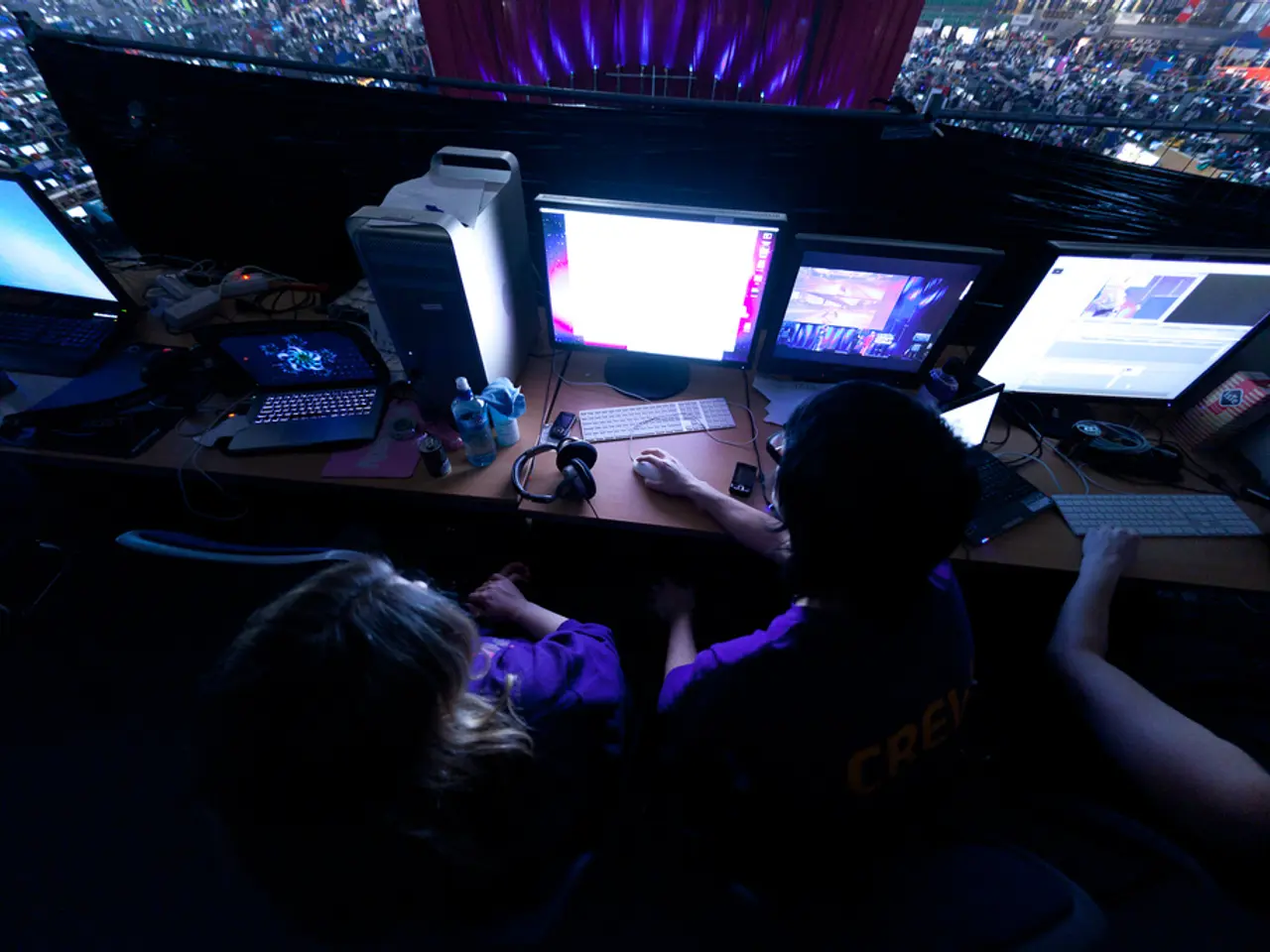Computers as initially conceived lack optimization for artificial intelligence, but OpenAI's innovative computer design promises to trigger an AI revolution that will be extraordinarily beneficial, according to Sam Altman.
In a bold move to revolutionise the tech landscape, OpenAI, the renowned artificial intelligence (AI) research organisation, is actively developing new AI hardware. This push into hardware development is set to disrupt the industry in several ways, particularly in how hardware is designed and used for AI applications.
## OpenAI's New Hardware Initiatives
OpenAI is expanding its physical infrastructure team to improve AI hardware capabilities, targeting more powerful and reliable AI tools, which could lead to better performance in high-computational AI tasks like generative AI models.
In a collaborative effort, OpenAI is also working with Jony Ive's IO startup to develop a new family of AI-powered devices. These devices are expected to be context-aware, screenless, and pocket-sized, integrating seamlessly with existing technologies.
The company is focusing on developing AI-specific hardware that aligns with the unique demands of AI processes, aiming to revolutionise how people interact with technology. This vision includes creating devices that are highly responsive and contextually aware.
## Potential Disruption in the Tech Industry
The development of AI-native hardware could lead to a fragmentation in the personal hardware landscape, with more specialized processors for specific AI tasks. This could challenge traditional chipmakers like AMD, Intel, and Nvidia, forcing them to innovate or risk displacement.
OpenAI's focus on AI-centric devices could push the industry beyond traditional CPU/GPU architectures, potentially leading to entirely new computing paradigms that are more suited to AI workloads.
The introduction of context-aware, AI-powered consumer devices could significantly alter how people interact with technology, potentially changing user behaviour and market demands.
OpenAI CEO Sam Altman has suggested that the AI revolution might not require new hardware, but if it does, users would be "happy to have a new device." Altman expresses excitement about the possibility of introducing a fundamentally new kind of computer.
In a recent interview, OpenAI's COO Brad Lightcap discussed plans for new hardware. Google's CEO Sundar Pichai has expressed that achieving Artificial General Intelligence (AGI) with today's systems is nearly impossible, which further emphasises the need for innovative hardware solutions like those being developed by OpenAI.
OpenAI is in a unique position to compete with tech giants like Microsoft, Google, Apple, and Samsung in the hardware department with AI-powered devices. With the addition of Jony Ive, former Apple designer, as its new design lead, OpenAI could potentially lead the way in creating user-friendly, context-aware AI devices that could significantly impact the tech industry.
As the development process of OpenAI's AI hardware remains slim on details, it is yet to be seen how these devices will shape the future of AI and the tech industry as a whole. However, with the potential for significant disruption and innovation, the anticipation is palpable.
- OpenAI, in collaboration with Jony Ive's IO startup, is developing a new family of AI-powered devices, aiming to revolutionize how people interact with technology.
- These pocket-sized devices are context-aware, screenless, and designed to integrate seamlessly with existing technologies.
- The development of AI-native hardware could lead to a fragmentation in the personal hardware landscape, potentially challenging traditional chipmakers like AMD, Intel, and Nvidia.
- Microsoft, Google, Apple, and Samsung could face competition from OpenAI, particularly in the realm of user-friendly, context-aware AI devices.
- The addition of Jony Ive as OpenAI's design lead positions the company to potentially lead the way in creating innovative AI hardware, altering the tech industry's future.




